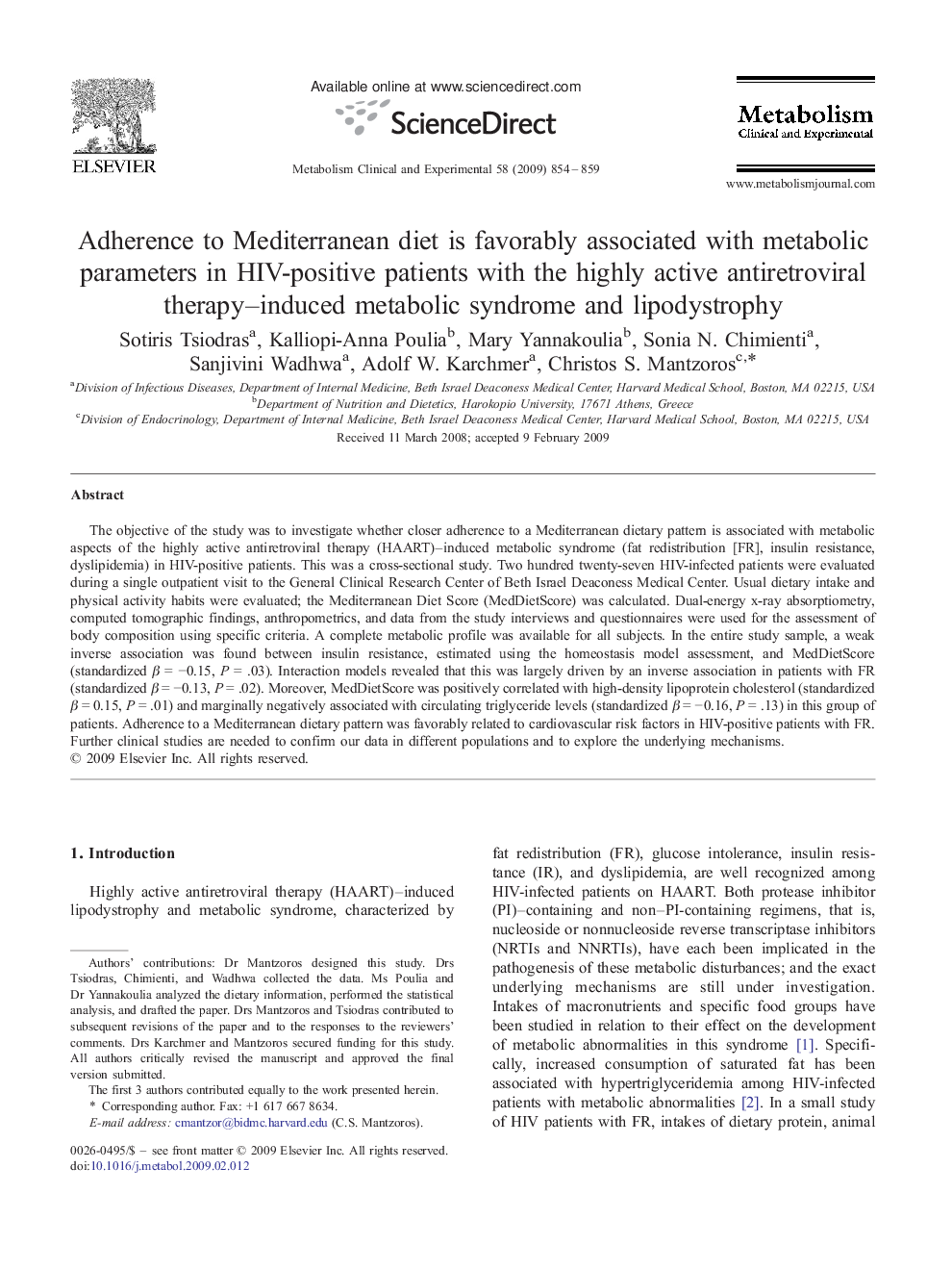| Article ID | Journal | Published Year | Pages | File Type |
|---|---|---|---|---|
| 2806897 | Metabolism | 2009 | 6 Pages |
The objective of the study was to investigate whether closer adherence to a Mediterranean dietary pattern is associated with metabolic aspects of the highly active antiretroviral therapy (HAART)–induced metabolic syndrome (fat redistribution [FR], insulin resistance, dyslipidemia) in HIV-positive patients. This was a cross-sectional study. Two hundred twenty-seven HIV-infected patients were evaluated during a single outpatient visit to the General Clinical Research Center of Beth Israel Deaconess Medical Center. Usual dietary intake and physical activity habits were evaluated; the Mediterranean Diet Score (MedDietScore) was calculated. Dual-energy x-ray absorptiometry, computed tomographic findings, anthropometrics, and data from the study interviews and questionnaires were used for the assessment of body composition using specific criteria. A complete metabolic profile was available for all subjects. In the entire study sample, a weak inverse association was found between insulin resistance, estimated using the homeostasis model assessment, and MedDietScore (standardized β = −0.15, P = .03). Interaction models revealed that this was largely driven by an inverse association in patients with FR (standardized β = −0.13, P = .02). Moreover, MedDietScore was positively correlated with high-density lipoprotein cholesterol (standardized β = 0.15, P = .01) and marginally negatively associated with circulating triglyceride levels (standardized β = −0.16, P = .13) in this group of patients. Adherence to a Mediterranean dietary pattern was favorably related to cardiovascular risk factors in HIV-positive patients with FR. Further clinical studies are needed to confirm our data in different populations and to explore the underlying mechanisms.
